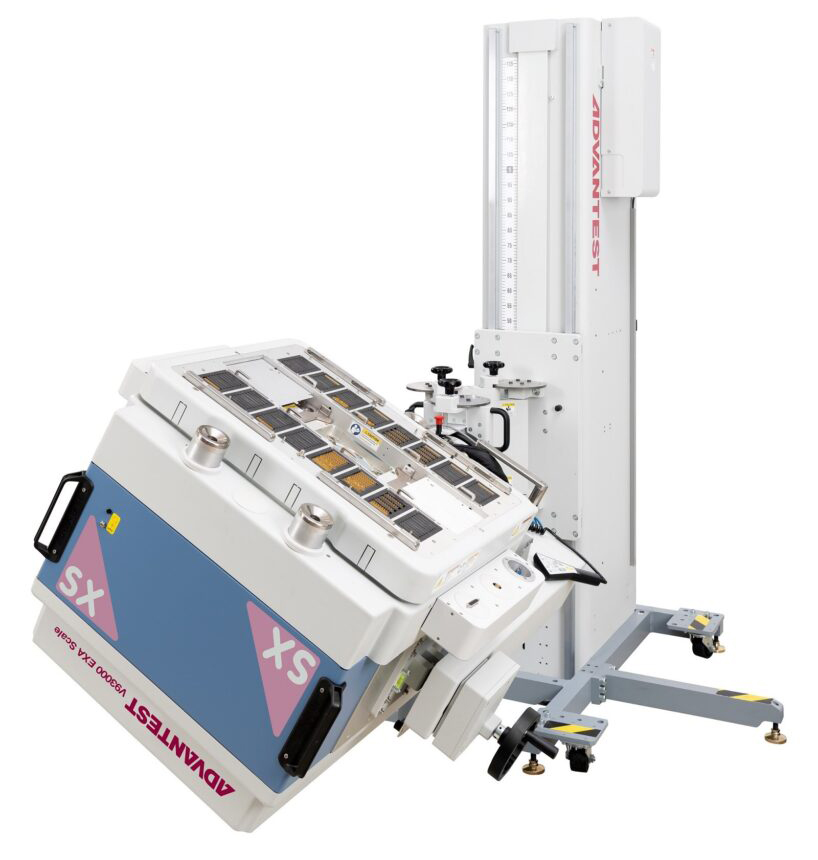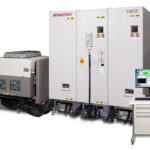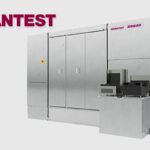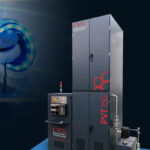ASIA ELECTRONICS INDUSTRYYOUR WINDOW TO SMART MANUFACTURING
Semiconductor Test Market Braces for New Investments
The industry expects the semiconductor market to expand in the medium to long term. Particularly, in the semiconductor inspection equipment market, manufacturers pay close attention to investment trends in emerging growth fields. Namely, artificial intelligence (AI), among others waiting for opportunities for growth.
Semiconductor testers come for system-on-chips (SoC), including advanced logic semiconductors, such as digital, radio frequency (RF), and mixed-signal ICs, and those for memories. Furthermore, semiconductor testers play an important role in inspecting the quality of chips by applying a probe on each chip on the wafer.

Technological advancement and progress in miniaturization and high functionalities of semiconductors led to an increase in the number of chips that can be mounted on a wafer, test items, and testing time. Semiconductor testers must process huge amounts of test data. Hence, they are necessary for improving inspection speed, reducing measuring time through simultaneous measurement, and improving yield to contribute to the reduction of semiconductor manufacturing costs.
Present Market Landscape Sluggish
Keeping with the high growth of the semiconductor market, semiconductor testers continue to grow. However, the present market situation is stagnant.
For the April to June period of 2023, a global leading company, Advantest Corporation posted sales of ¥101.3 billion, decreasing 25.5 percent from the same period of the previous year. SoC testers for advanced process products have been sluggish. Moreover, testers for memories had been on the receiving end of reduced investments in servers and the sluggish memory market. Particularly, due to slow sales of smartphones and personal computers.

For the same period, U.S.-based Teradyne Inc., which competes with Advantest, posted sales of US$684 million (about ¥99.2 billion), down 19 percent from the year earlier. In comparison with the previous quarter (January to March), Teradyne increased profits driven by the demand for testing of automotive and memory products. By construct, Advantest saw its profits to decline.
Toward Higher Functionalities
Efforts to improve the functionalities of semiconductors advance. These include the reduction of power consumption, improvement of operation speed, and the adoption of three-dimensional (3D) structure to improve performance by stacking chips vertically.
The data processing amounts of wireless communications represented by fifth-generation (5G) communications have been increasing. Furthermore, power semiconductors that deliver higher voltage and higher current, including compound semiconductors, such as silicon carbide (SiC) and gallium nitride (GaN) power devices, are emerging. Thus, semiconductors are becoming increasingly complex. Hence, challenges in measuring semiconductors have diversified. In the system-level test wherein final products are tested under conditions close to actual use, required standards for testers for chips for 3D packages, AI, and advanced driver-assistance systems (ADAS) with large devices have become even more demanding.
Full-Scale Recovery Next Year?
As the recovery in sales of smartphones and PCs has been delayed, the full-scale rise of the chip tester market will likely be put off until next year. Nonetheless, the demand for semiconductors for high-performance computing (HPC), automotive electronics, internet of things (IoT), industrial equipment, and image sensors remains strong. The semiconductor market landscape is not uniform. Under these circumstances, there are high expectations for the demand for testers for generative AI devices.
Generative AI requires many high bandwidth memories (HBM) and DDR5, the new standard in dynamic random access memory (DRAM), as well as logic semiconductors, such as graphics processing units (GPU). For this reason, generative AI is expected to create big demand for semiconductor manufacturing equipment and tester industries.
U.S.-based leading tech companies who are also hyperscalers (large-scale cloud operators) develop devices for generative AI in-house in order to enhance competitiveness. From Teradyne, Takashi Umenaga, Strategic Product Manager, Teradyne K.K, says, “Going forward, the growth of them (leading tech companies) in the generative AI region will prove a positive factor for our company.”
Meanwhile, Advantest is proud of its having a large share of generative AI-related processors. Besides, Yoshiaki Yoshida, Representative Director, President & Chief Executive Officer, says, “There are very positive talks about investment,” regarding memories. The company aims to capture future demand for testers to support semiconductor manufacturers to increase their production capacities.




